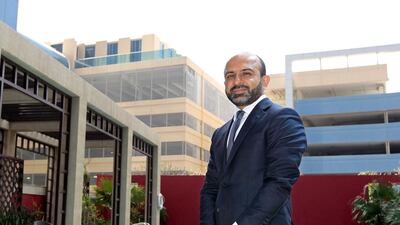No matter how hard it tries, and what measures it takes, it is hard for the Arabian Gulf region to shake off the controversies of its labour policies.
Some in the West, perhaps with their own agenda, see the issue as an easy stick with which to beat governments and other employers in the region.
It is not going away as an issue. With massive projects such as the World Expo 2020 in Dubai, and Fifa World Cup 2022 in Qatar, to say nothing of the big infrastructure projects all Arabian Gulf governments are pursuing, the lurid headlines of exploitation and abuse look set to continue, however unfair they are perceived to be in the region.
One professional recommending a new approach is Sachin Kerur, head of the Middle East practice of international law firm Pinsent Masons. “The vision should be for the GCC construction sector’s workforce to be the envy of the world precisely because it is rooted in best practice,” he says.
Mr Kerur speaks with some authority on the matter. His firm is a globally recognised construction law practice, and has all the legal awards and ranking to prove it.
He has been based in the UAE for a decade “living and breathing much of the major development in construction over the past 10 years,” he says.
Why does the region continue to attract criticism from international media and humanitarian bodies for its labour practices?
“We need to put some of the less favourable headlines about the GCC’s construction sector workforce into context,” Mr Kerur says.
“Not many other places in the world have had such a significant construction sector boom and as a result there is a huge demand for a workforce – it literarily needs several million workers – to support the regional development.
“At its heart, the issue is about the treatment of the sector’s workforce and the standards the industry is committing to going forward. In many ways, the GCC actually does construction very well – and this includes how the workforce is dealt with and looked after.
“Sure, there absolutely are problems that still need to be addressed and tragic accidents do, sadly, happen from time to time but I know these issues are taken seriously by the authorities.
“No one wants to see accidents happen and there is a commitment to keep improving standards, whether that’s with workforce training, recruitment or living conditions,” he adds.
But, to put not too fine a point on it, the economics of the industry demand an efficient and productive labour force. Mr Kerur sees this as the “bigger issue”.
He says: “That is how the industry keeps making efficiency gains and growing its contribution to GDP, while simultaneously ensuring it maintains very high standards around its workforce – in everything from how it’s recruited, to how people are accommodated during a project. Dealing with growing the industry in isolation of the workforce issue won’t bring improvements. Similarly, dealing with any workforce issues won’t work without considering the growth and financial profitability of the industry. The two need to be addressed together.”
But how to address these in an environment where laws of association are often curtailed for historical and cultural reasons?
“The solution is a platform for all parties involved in the construction sector to have an open and honest forum for dialogue. There are a multitude of businesses, authorities, non-government organisations, and other service providers that need to be brought to the table for a larger and holistic debate about the sector’s future.
The workforce, and everything about it, will of course be a major part of this,” Mr Kerur says.
So the firm is recommending that an independent think tank be established to focus on the specific issues facing the construction industry.
“This group should not be limited to employer interests or only involve local entities, but it should have a wide ranging membership with a variety of expertise and experience – from skills training providers to charities concerned with labour worker welfare.
This think tank should also seek to include a mix of international and local expertise given the GCC’s construction sector competes on a global scale,” he says.
A sceptic might object that such a body would be too unwieldy for any serious issues to be decided.
“I disagree with that view,” he says. “It is only by bringing together the full sweep of interests and views from across the construction stakeholder base, that we can start to truly tackle the plethora of workforce-related issues impacting on the efficiency and effectiveness of the sector as a whole.”
Labour law is at the forefront of legal issues, but it is not the only one, adds Mr Kerur. The big legal disputes about contractual and payment problems may have receded as the effects of the financial crisis recede, but they will never fully disappear.
“So long as people are engaged in supplying services, there will always be disagreements about who is owed what,” he says.
Mr Kerur and the company also have firm views on the need for a UAE-wide bankruptcy law. “Such reforms should not be feared but seen as heralding another chapter in the fortunes of the UAE. I am all for reform, subject to two important conditions.
Firstly, any reforms have been preceded by careful consultation with all interested parties. Secondly, any legal reforms, while borrowing the best bits from elsewhere, must not lose sight of the local conditions and must therefore remain relevant to and complementary with, commercial traditions here,” he says.
fkane@thenational.ae
Follow The National's Business section on Twitter

